Israel
Mothers of Israeli hostages held by Hamas in the Gaza Strip marched in Tel Aviv to calling for the return of their loved ones.
Palestinian militants are still holding around 80 hostages and the remains of 40 others.
The office of the Israeli Prime Minister said Thursday Benjamin Netanyahu was sending negotiators to resume cease-fire talks.
This came after Hamas sent its latest response to the U.S.-backed proposal.
Yael Alexander the mother of a 19-year-old who was taken hostage while serving in the military marched Friday (Jul. 05.
“I come today to scream as a mum, that nine months my kid is in Gaza is in the tunnel of Hamas and he needs to come back home. We need a deal and we need it now.”
Israeli negotiators are expected to arrive in Qatar’s capital with US, Egyptian and Qatari officials are already present in Doha.
The US proposed plan would see the release of all hostages in return for a lasting truce and the withdrawal of Israeli forces from Gaza.
Neither side appears to have fully embraced it, though.
Hamas suggested “amendments” to the proposal last month while Benjamin Netanyahu has so far rejected an end the war.
What's new?
Hamas political official Bassem Naim said that the group has neither accepted nor rejected the US proposal, and has “responded with some ideas to bridge the gap” between the two sides, without elaborating. Ismail Haniyeh, Hamas' top political leader, has shared suggestions with Egyptian, Qatari and Turkish officials, the group said in a statement late Wednesday.
U.S. officials have said the latest proposal has new language that was proposed to Egypt and Qatar on Saturday (Jun. 29) and addresses indirect negotiations that are set to commence during the first phase of the three-phase deal that U.S. President Joe Biden laid out in a May 31 speech.
What are the phases of the plan?
The first phase calls for a “full and complete cease-fire,” a withdrawal of Israeli forces from all densely populated areas of Gaza and the release of a number of hostages, including women, older people and the wounded, in exchange for the release of hundreds of Palestinian prisoners.
The proposal called for the parties to negotiate the terms of the second phase during the 42 days of phase one. Under the current proposal, Hamas could release all of the remaining men, both civilians and soldiers, during the second phase. In return, Israel could free an agreed-upon number of Palestinian prisoners and detainees. The releases wouldn't occur until “sustainable calm” takes effect and all Israeli troops withdraw from Gaza. The third phase would see the return of the remains of hostages.
The transition from the first to the second phase has appeared to be the main sticking point.
Hamas is concerned that Israel will restart the war after the first phase, perhaps after making unrealistic demands in the talks. Israeli officials have expressed concern that Hamas will do the same, drawing out the talks and the initial cease-fire indefinitely without releasing the remaining captives.
In a lengthy television interview last month, Netanyahu said that he was prepared to make a “partial deal,” but was committed to continuing the war “after a pause” in order to annihilate Hamas. Later, speaking before Israel's parliament, he said Israel remains committed to the deal outlined by Biden. The official position remains shrouded in mystery.
As cease-fire talks appeared to be gaining new steam, the Health Ministry in Hamas-run Gaza said the death toll in the war had climbed past 38,000.





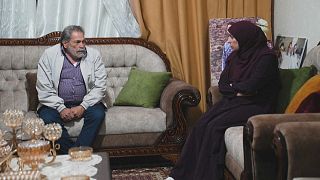
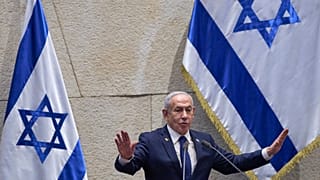
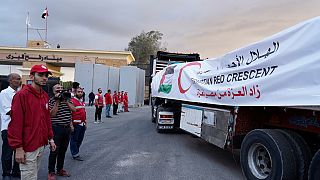

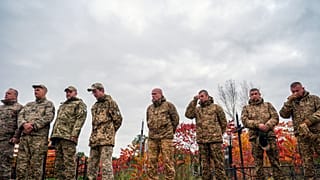
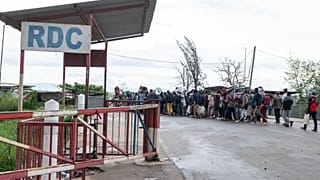

Go to video
Cameroon post-election unrest: Protesters jailed, others freed
01:00
New video shows Gaza hostages celebrating Hanukkah before their deaths
00:03
Floodwaters devastate Gaza camps amid ongoing humanitarian crisis
Go to video
Ghana hits back at Israel with reciprocal deportations
00:55
Ghana condemns 'inhumane' treatment of travellers at Israel airport
01:41
Eritrean Biniam Girmay hired as lead cyclist for former Israeli team